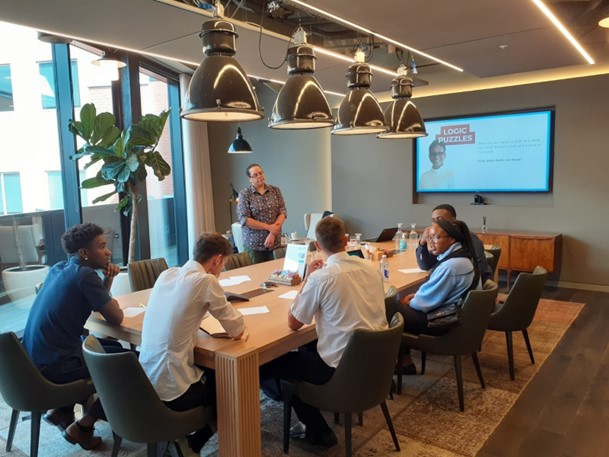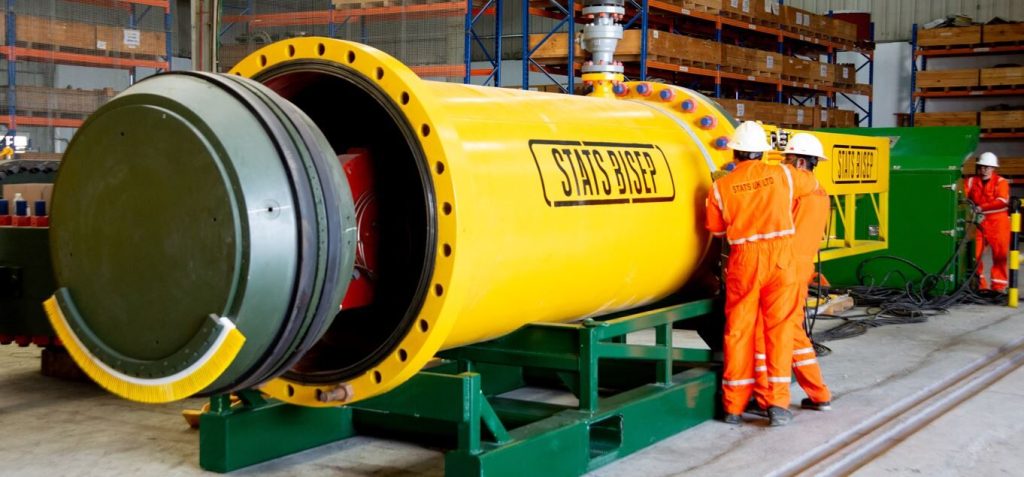What I look for in a manufacturing business
Hear from BGF investor Paddy Graham, who heads up our team in Scotland and Northern Ireland, as he discusses some of the key traits he looks for in a manufacturing business.

Paddy Graham leads the investment team in Edinburgh covering Central Scotland and Northern Ireland. He has 16 years of investing experience, having overseen investments in companies such as M Squared Lasers and Walker Precision Engineering. Here, Paddy talks about the six things he looks for in a manufacturing business as an investor.
1. The yin and yang of teams
It’s important that the management team is a good working unit made of complementary skillsets that work in balance with one another. I like to see an ambitious CEO that wants to push the boundaries, but this approach may be most effective when there is also a strong CFO to provide a dose of practical realism. That yin and yang often works well. The team also needs to be self-aware, to be curious about what they don’t know, and be willing to receive input from other parties to help improve the business.
2. Whatever they do, they do it extremely well
A business doesn’t need to have ground-breaking technology or products (although this is obviously good!). It can be a great manufacturing company that does run-of-the-mill stuff. The key is to do it extremely well. That means having streamlined and effective operations, with a focus on the basics that customers expect but which many businesses fail to deliver – for example, high quality products, reasonable lead time and superb customer service. In our portfolio, Decora is one example of a company in an established market segment – it manufactures blinds and window coverings – that stands out because its operations are so efficient and of high quality.
3. A big enough pool to grow in
The market the business operates in does not need to be enormous, but it does need to be big enough to allow the company to reach its goals without having to own the entire market. Some businesses do own the entirety of their market, but they are few and far between. The exception to this is if a niche market is expected to grow fast. For example, we invested in raw pet food business Bella & Duke. The market for raw pet food isn’t huge, but we expect it to grow rapidly, and Bella & Duke is in a great position to benefit from that growth.

4. Potential to expand into new locations
A lot of manufacturing businesses are limited by geography. If they manufacture something that’s very bulky or heavy, transportation restrictions may mean it doesn’t make economic sense to try to ship to distant territories. However, if the business is able to physically open up in other geographies, then that will open its market and create opportunities. If a business says international growth is part of its plan, it needs to be able to demonstrate to an investor how it will plug into new territories and what the supply chain set-up will look like.
5. Multiple options for when we part ways
If there’s a track record of mergers and acquisitions (M&A) in the market, and I can see a pool of potential buyers for the business, that’s a big tick in the box. A benefit to us – and, generally speaking, all shareholders – is being able to keep our options open when it comes to exiting our investment. At BGF, our approach is that it is up to the business what route they want to go down, but it is reassuring if we can foresee multiple options. If there are potential trade buyers, management buyout options or the possibility of listing on a stock exchange then that makes the business even more attractive to invest in.
6. Fun to work with
I don’t only consider the talents and skills of the team but whether we can build a relationship with them. I’ve always taken the approach of spending just as much time with the management team outside the business as we do inside, because I think you get to properly know a person or team by spending meaningful time with them talking about everyday stuff rather than exclusively business matters. Successfully scaling a business and creating value can take time and there will be plenty of bumps along the road, therefore it is vital that everyone involved enjoys the journey and has fun along the way. A strong relationship and alignment among the shareholders is key to achieving this, as well as ensuring the right outcome for everyone is delivered.

Which BGF investments have you made that are great examples of the kind of businesses you look for?
I could point to any of the BGF investments but Stevenswood springs to mind. We backed a team of three individuals with complementary skillsets. They were experienced, openminded and great fun to work with. We built a great relationship with them, significantly grew the business and, while we sold it to a trade buyer, there were plenty of other options in terms of exits.
The same individuals came back to us a couple of years later having started another manufacturing business and we invested in them again. The new business is Window Supply Company (above) – a great team, a strong relationship with us and a real focus on getting the basics right. That was a compelling opportunity for everyone involved.

Looking forward, what sectors/industries are you looking forward to investing in, in the future?
While there is obviously a buzz around sustainability and fintech, I would say I am most excited by the changing dynamic of working and am therefore interested in proptech. We just invested in a proptech business called Desana (above), which is an early-stage company that helps businesses manage flexible coworking. This sector has the potential to be extremely lucrative.
But to be honest, I am not that picky about sectors. For me, the core areas that makes a business attractive are the team, how the business is run and the size and deliverability of the opportunity.
Paddy Graham shared his thoughts with Lucy Rimmer, who worked in BGF’s marketing team as part of the 2021 internship programme.





